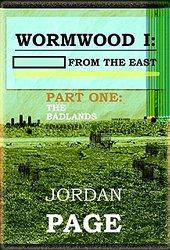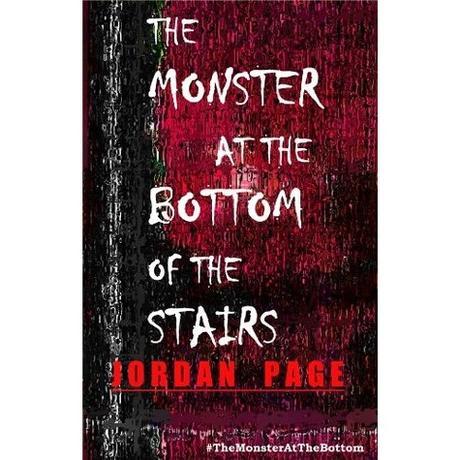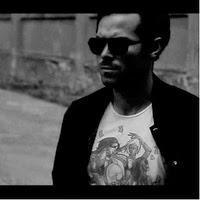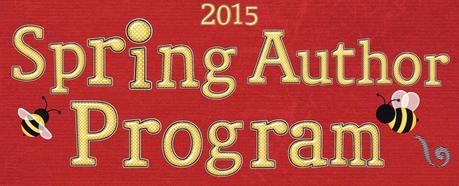 You may have noticed that I like post-apocalyptic fiction. But I'm not the only one. Jordan Page, our featured author today, is a fan, too. He wrote the post-apocalyptic novel Wormwood, which just released in March 2015. He has also wrote other books in different genres, such as horror and dark satirical literature. Today, though, we're focusing on Wormwood. Why? Well, because it's new and because I love post-apocalyptic fiction. Enjoy the Question and Answer with Jordan below, accompanied by my review of his novel!
You may have noticed that I like post-apocalyptic fiction. But I'm not the only one. Jordan Page, our featured author today, is a fan, too. He wrote the post-apocalyptic novel Wormwood, which just released in March 2015. He has also wrote other books in different genres, such as horror and dark satirical literature. Today, though, we're focusing on Wormwood. Why? Well, because it's new and because I love post-apocalyptic fiction. Enjoy the Question and Answer with Jordan below, accompanied by my review of his novel! Tell us about Wormwood. Wormwood is a post-apocalyptic story in which I've taken bits and pieces from other post-apocalyptic stories that I've loved (not so much plot, but rather environment) and made them my own. It's also a post-apocalyptic story that I've always wanted to read, but nobody would ever write it, so I had to take matters into my own hands.
Originally Chapter One was a short story for a creative writing class with a cliffhanger; my professor had high remarks, saying it reminded her of Shirley Jackson's "The Lottery" with Western elements. Sometime after, I realized I could take the short story and turn into chapter one of a book. As for specific inspirations for Wormwood, I would have to say Cormac McCarthy's "Blood Meridian" really inspired me to write a brutal (and brutally honest) post-apocalyptic novel.
 What is your favorite part of writing?
My favorite part of writing is the creation of the characters and the plot, and also knowing that nobody else in the world could create the novel in progress. Plus, on occasion, the story writes itself, and I'm just as surprised by the outcome of events than my potential reader.
Why do you think post-apocalyptic fiction is so popular with readers?
Post-apocalyptic fiction is so popular because of a few reasons. Firstly, anything and everything can almost destroy the planet, so writers have a lot of premises to work with, and likewise readers have many options - zombies, viruses, climate change, floods, robots, asteroids, war. And secondly, I think people feel unappreciated in "real" life. They feel like other people don't see their true potential. And in a post-apocalyptic world, the kid voted Most Popular in your high school yearbook might not survive; but the dorky, hard-to-like kid who keeps to himself might be the best survivor in a post-apocalyptic world.
Glenn and Daryl from The Walking Dead are perfect examples of people being irrelevant in the "Real World," and then important in a post-apocalyptic setting (and I might add that Glenn was able to find a wife way out of his league, too); with all that being said, while post-apocalyptic fiction is gruesome and cruel and oftentimes so honest that it's sick (like in Cormac McCarthy's The Road), it's also fantasy because it's a second chance for a lot of people.
How long did it take you to write Wormwood?
It's taken me roughly 7 years to finish. I started writing the first draft of wormwood in 2008. I had a 180,000 word draft finished by 2009. However, I started reading a lot more books and I realized a few things: that a lot of my writing wasn't good enough, and that the story was too rushed. So I revised it, and it ended up being 270,000 words (keeping the exact same story, but letting the scenarios play out organically, without rushing anything for the sake of getting to the end). Ever since, I've been revising between other novels I've written. After it's eighth revision, I realized that I the first part of the novel was polished enough to release as an ebook.
Imagine that the apocalypse hits: what is your real-life reaction?
I would say, no matter what kind of post-apocalyptic scenario there is, that holing up in a mall would be a good place to survive. Especially if you have a group of good people with you (that won't turn into cannibals at the drop of a dime), and if it has a good book store. But I wouldn't handle the end of the world very well, because without the internet or book publishers, I'd have to give up on the idea of writing for a living.
Summer's Review of Wormwood
What is your favorite part of writing?
My favorite part of writing is the creation of the characters and the plot, and also knowing that nobody else in the world could create the novel in progress. Plus, on occasion, the story writes itself, and I'm just as surprised by the outcome of events than my potential reader.
Why do you think post-apocalyptic fiction is so popular with readers?
Post-apocalyptic fiction is so popular because of a few reasons. Firstly, anything and everything can almost destroy the planet, so writers have a lot of premises to work with, and likewise readers have many options - zombies, viruses, climate change, floods, robots, asteroids, war. And secondly, I think people feel unappreciated in "real" life. They feel like other people don't see their true potential. And in a post-apocalyptic world, the kid voted Most Popular in your high school yearbook might not survive; but the dorky, hard-to-like kid who keeps to himself might be the best survivor in a post-apocalyptic world.
Glenn and Daryl from The Walking Dead are perfect examples of people being irrelevant in the "Real World," and then important in a post-apocalyptic setting (and I might add that Glenn was able to find a wife way out of his league, too); with all that being said, while post-apocalyptic fiction is gruesome and cruel and oftentimes so honest that it's sick (like in Cormac McCarthy's The Road), it's also fantasy because it's a second chance for a lot of people.
How long did it take you to write Wormwood?
It's taken me roughly 7 years to finish. I started writing the first draft of wormwood in 2008. I had a 180,000 word draft finished by 2009. However, I started reading a lot more books and I realized a few things: that a lot of my writing wasn't good enough, and that the story was too rushed. So I revised it, and it ended up being 270,000 words (keeping the exact same story, but letting the scenarios play out organically, without rushing anything for the sake of getting to the end). Ever since, I've been revising between other novels I've written. After it's eighth revision, I realized that I the first part of the novel was polished enough to release as an ebook.
Imagine that the apocalypse hits: what is your real-life reaction?
I would say, no matter what kind of post-apocalyptic scenario there is, that holing up in a mall would be a good place to survive. Especially if you have a group of good people with you (that won't turn into cannibals at the drop of a dime), and if it has a good book store. But I wouldn't handle the end of the world very well, because without the internet or book publishers, I'd have to give up on the idea of writing for a living.
Summer's Review of Wormwood
Wormwood: Part 1 conjured up images in my mind of what the aftermath of an apocalypse might look like in the wild west. I've never read anything quite like it - and I've read a lot of post-apocalyptic and dystopian fiction over the years. Our hero, Quinton, lives in a little dusty town called Bill Town, founded by a guy named Bill and run by the same. Whatever disease wiped out most of mankind has mutated some of the animals, poisoned the water sources and made planet Earth a bit of a drag to live on. But Quinton has been working on a secret project...something that will change everything....something that could be dangerous. I don't want to give anything away, so I'll leave it at that.
Jordan's writing style is uniquely descriptive and lends readers a profound sense of desolation in the midst of the apocalyptic wasteland that is the book's setting. There is an array of colorful characters and interesting backdrops. The book is almost written in a high literary style, with wordy flourishes and lengthy internal musings from Quinton. It makes the apocalypse more interesting, and exciting. Little details like Pokemon cards and bottles of Root Beer are beheld by the survivors like prized artifacts from another civilization - which, in fact, they are. Overall, a satisfying post-apocalyptic read that Jordan should be proud of!
Get it on Kindle!
Show your support for a new author and leave a review, too!
 About the Author
I always knew I wanted to be a storyteller, I just never really knew it would be writing novels until I discovered that filmmaking was way too expensive to interpret stories in my head on the big screen. I still do make films (I write, produce, and act); you can find them at www.youtube.com/striketoburn1, and in the next few months you'll be able to watch my biggest project ever: "Resident Evil: Red Falls" (a non-profit fan film, so don't forget to subscribe).
About the Author
I always knew I wanted to be a storyteller, I just never really knew it would be writing novels until I discovered that filmmaking was way too expensive to interpret stories in my head on the big screen. I still do make films (I write, produce, and act); you can find them at www.youtube.com/striketoburn1, and in the next few months you'll be able to watch my biggest project ever: "Resident Evil: Red Falls" (a non-profit fan film, so don't forget to subscribe).Currently I've got two short stories on Amazon; they're both satirical, politically cynical horror stories--one is a take of the zombie genre (LeanRx: Results May Vary), the other is a twist on the demon genre (Lucifer's Tongue). Please check them out. They're only $0.99. (Author Synopsis from GoodReads)


